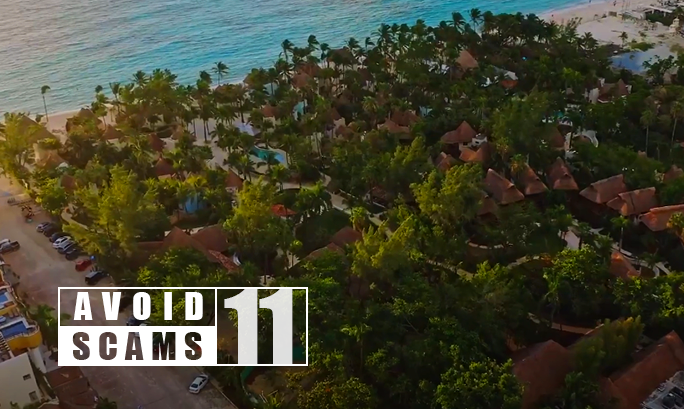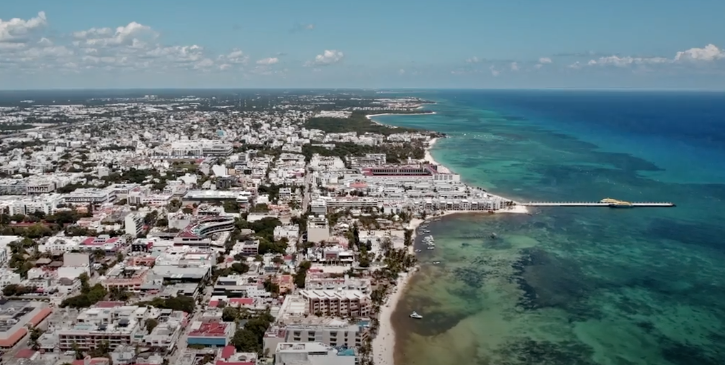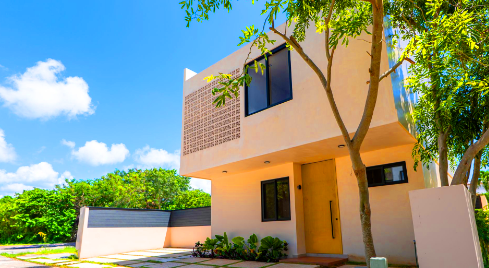How Not To Get Scammed Part 11: 5 Most Common Scams

Navigating Paradise: The 5 Most Common Real Estate Scams in Mexico's Riviera Maya
The allure of white-sand beaches and turquoise waters has made Mexico's Riviera Maya a hot spot for real estate investment. However, the booming market has also attracted a darker element: sophisticated scams that can turn a dream of paradise into a financial nightmare. From fraudulent listings to the complexities of land ownership, here are the five most common real estate scams to be aware of in this sought-after coastal region.
Mycasa Real Estate's licensed agents specialize in navigating the complexities of the Mexican real estate market. We prioritize your security by vetting developers and ensuring thorough due diligence, holding your hand through every step of the process. Reach out to us for a quick consultation
How Not To Get Scammed Series
Part 1 | Part 2 | Part 3 | Part 4 | Part 5 | Part 6 | Part 7 | Part 8 | Part 9 | Part 10 | Part 11 | Part 12 | Part 13 | Part 14
1. The Phantom Listing and the Bait-and-Switch
A pervasive scam involves properties that either don't exist or are not actually for sale. Scammers will use attractive, often doctored, photos and descriptions to lure in potential buyers, typically from abroad. Once a buyer expresses interest and often sends a deposit, the "agent" may disappear, or the buyer arrives to find the property is not as advertised or is owned by someone else entirely.
A variation of this is the classic "bait-and-switch," where a desirable property is advertised at a fantastic price. Upon inquiry, the buyer is told that the specific listing is no longer available but that there are other, usually less attractive or more expensive, properties they can see. This tactic is used to get a foot in the door and pressure buyers into a less-than-ideal investment.
How to Protect Yourself:
-
Verify the Property's Existence: Use Google Maps and Street View to get a preliminary look at the property and its surroundings.
-
Insist on a Live Video Tour: Ask the agent to do a live, personalized walkthrough of the property.
-
Never Send Money Sight Unseen: Do not transfer any funds until you or a trusted representative has physically visited the property.
2. The Perils of "Ejido" Land
A significant portion of land in Mexico, including in the Riviera Maya, is designated as "ejido" land. This is communally owned land that was granted to rural communities. While it is possible to privatize and sell ejido land, the process is complex and requires the agreement of the entire ejido assembly. Scammers will offer what appears to be a great deal on a piece of ejido land, often without having the legal authority to sell it. Foreigners who purchase ejido land without the proper privatization process can find themselves with no legal title to the property and no recourse to recover their investment. Read more about this topic HERE in Part 8 of this series.
How to Protect Yourself:
-
Verify Land Title: Always have a reputable Mexican notary (Notario Público) and a real estate lawyer conduct a thorough title search to confirm the property's legal status.
-
Be Wary of Unbelievably Low Prices: If a deal seems too good to be true, it likely is. Deeply discounted land prices are a major red flag for ejido-related scams.
-
Understand the "Fideicomiso": For most coastal properties, foreigners must purchase through a bank trust known as a "fideicomiso." Ensure this is set up correctly with a reputable financial institution.
3. Pre-Construction Promises That Never Materialize
The Riviera Maya is experiencing a construction boom, with many new condominium and housing developments being sold "pre-construction." While this can be a legitimate way to get a good price, it is also a common avenue for fraud. Unscrupulous developers may collect hefty down payments for projects that are never completed, or the finished product is of a significantly lower quality than what was promised. In some cases, the developer may not even have the necessary permits to build.
How to Protect Yourself:
-
Thoroughly Vet the Developer: Research the developer's track record. Look for completed projects and speak to previous buyers.
-
Verify Permits and Licenses: Ensure the developer has all the necessary building permits and licenses from the local municipality. A lawyer can assist with this.
-
Use an Escrow Account: Whenever possible, insist on using a reputable third-party escrow service to hold your funds until construction milestones are met.
-
4. The Unlicensed and Unscrupulous "Agent"
The real estate industry in the state of Quintana Roo, where the Riviera Maya is located, has some licensing requirements, but the enforcement can be inconsistent. This has led to a proliferation of unlicensed and unethical individuals posing as real estate agents. These individuals may lack the knowledge to navigate the complexities of Mexican real estate law and may prioritize a quick commission over the buyer's best interests. In the worst-case scenario, they may be involved in outright fraudulent activities.
How to Protect Yourself:
-
Work with Reputable Agencies: Choose well-established real estate agencies with a physical office and a strong reputation in the community.
-
Ask for Credentials: Inquire about the agent's professional affiliations, such as the Mexican Association of Real Estate Professionals (AMPI).
-
Get Everything in Writing: Do not rely on verbal promises. All agreements and terms should be clearly documented in a formal contract reviewed by your lawyer.
-
5. Title Fraud and Forged Documents
A more brazen scam involves the use of forged titles and other official-looking documents to "sell" a property that the scammer does not own. This can be particularly difficult for foreign buyers to detect, as they may not be familiar with the appearance of legitimate Mexican legal documents. By the time the fraud is discovered, the scammer has vanished with the buyer's money.
How to Protect Yourself:
-
The Crucial Role of the Notario Público: In Mexico, the Notario Público is a highly experienced and government-appointed lawyer who plays a neutral and crucial role in real estate transactions. They are responsible for verifying the legality of the title and ensuring the proper transfer of ownership. Never bypass the notario process.
-
Independent Legal Counsel: Hire your own independent real estate lawyer to review all documents and work in conjunction with the notario. Do not rely on a lawyer recommended by the seller or their agent.
-
Verify the Notary: Confirm the legitimacy of the Notario Público through the official Mexican government registry.
By exercising due diligence and enlisting the help of qualified and independent professionals, investors can significantly mitigate the risks and safely navigate the path to owning a piece of paradise in the Riviera Maya.











Comments (0)